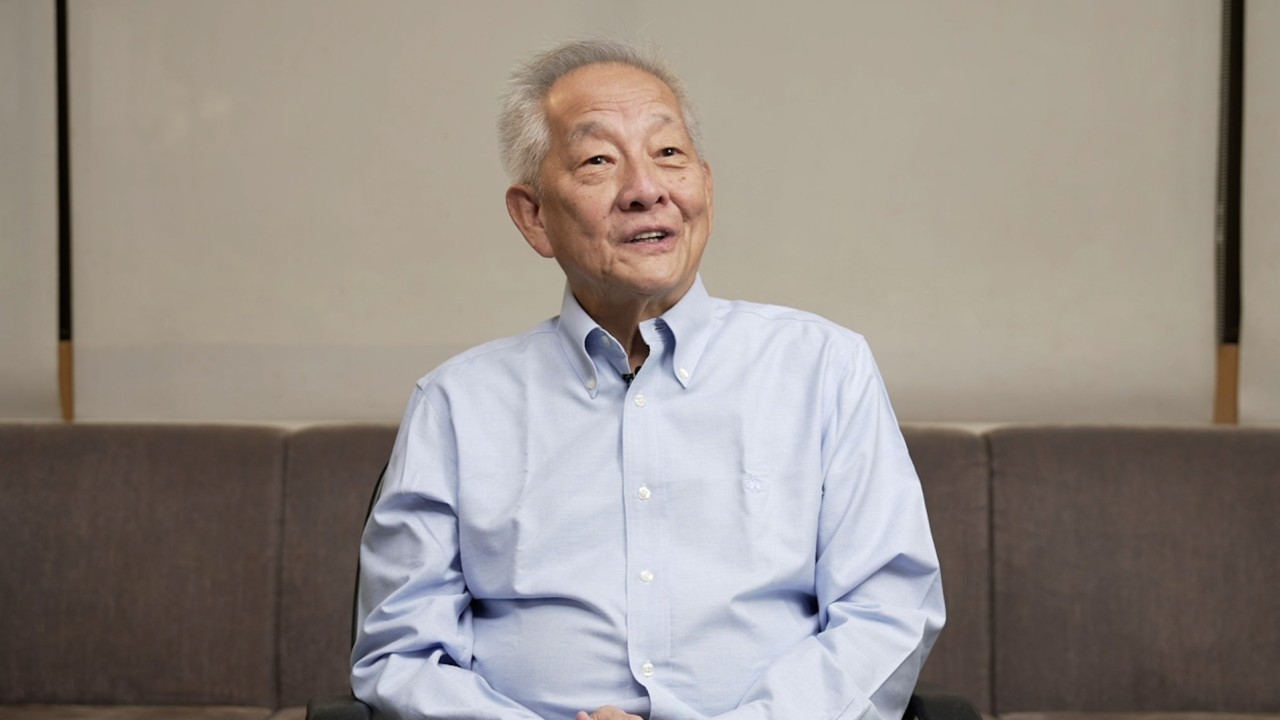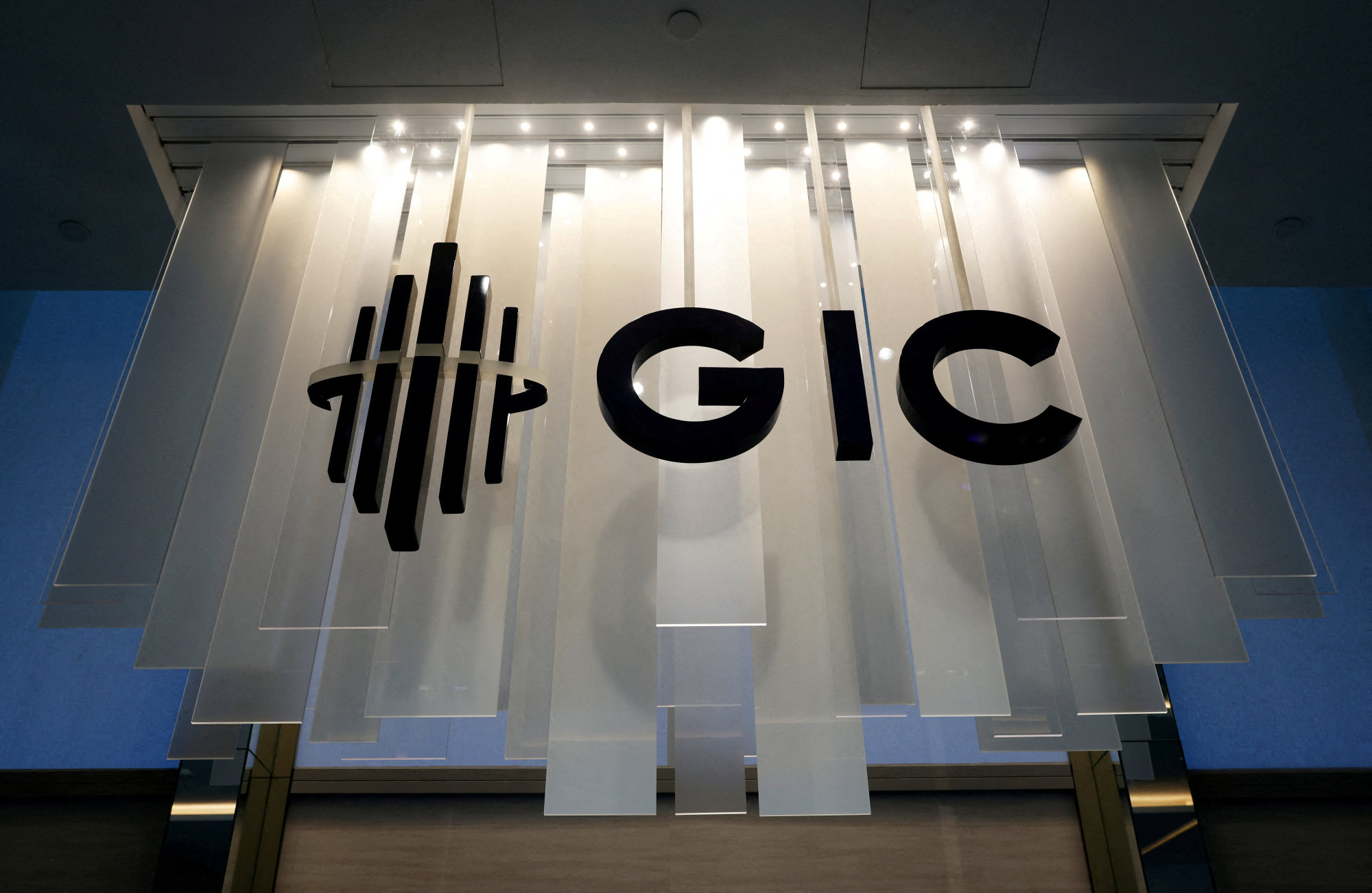
05:14
Singapore lucky to have Tharman Shanmugaratnam and me running for president: Ng Kok Song
Exclusive | Singapore ‘fortunate’ to have Tharman Shanmugaratnam and me running for president but I have independent edge: Ng Kok Song
- The GIC’s former chief investment officer says his lack of political affiliation could help him best presidential front runner Tharman Shanmugaratnam
- Read on for his thoughts on his opponent, what it means to be ‘establishment’ – and the threat of corruption – in an exclusive interview with the Post
The presidential hopeful and former chief investment officer of sovereign wealth fund GIC said ex-British prime minister Gordon Brown and billionaire investor Ray Dalio were among those who had commended him for running, with both commenting that he and Tharman were “the two best people they can think of standing for the presidency”.
These observers had told him that Singaporeans were “fortunate” to have the choice of such candidates, Ng told This Week in Asia ahead of nomination day on Tuesday.
“They will say, well, we know Tharman as a political leader, as a central bank governor, as a minister for finance, but we know you – Kok Song – as a global business leader,” he said. “We know you as the person who helped to build up the GIC to be one of the leading sovereign funds in the world.”

The 75-year-old has been working to counter a prevailing view that he has less of an international standing than Tharman, who has held positions in several global organisations.
He and Tharman, a former policymaker, had “served our country in different ways” and both could stand shoulder to shoulder on the international stage, Ng said – noting however that his reputation had been built in private dealings at the highest levels of global corporate life while his opponent’s was in the public domain.
Ng cited his complete lack of political affiliation – and absence of consequent obligations or loyalties – as the biggest advantage he has over Tharman, who was in politics for 22 years and served at the highest levels of government as part of the ruling People’s Action Party, which controls about 90 per cent of seats in parliament.
Singapore kick-starts presidential campaigning amid ‘pretty girls’ controversy
Such past political affiliation could prevent Tharman from serving as an effective check against the government, Ng suggested. Singapore’s president is largely a ceremonial head of state with no executive role, but the office does include certain blocking powers over the use of reserves and appointments to top public-sector positions.
“[Suppose] one day, we have a corrupt prime minister, we have a corrupt finance minister. You come to the president, and say ‘I want to draw down on the past reserves’. Now, if the president had been a long-time member of that governing party, wouldn’t that put him in a very difficult position?”
Such a scenario was not “fanciful”, Ng said, as it had played out in other countries.
Without political independence, a president might not be able to serve the role of “unifying the people of Singapore” or “rise above politics” in an increasingly polarised society, he said.
We cannot change our history. We cannot say ‘yesterday, I was like that, today, I am like this’
“We cannot change our history. We cannot say ‘yesterday, I was like that, today, I am like this’,” Ng said. “It is quite possible that you could have somebody who has been so affiliated with the governing party to dare to oppose the governing party. I think that is not an easy thing to do because you were so much part of the system.”
Observers have questioned Ng’s claims to political independence as the GIC is directly answerable to the government and forms an integral part of Singapore’s financial ecosystem, prompting some to say he is cut from the same establishment cloth as Tharman.
But Ng rejected this notion, saying there was a “misunderstanding over the word ‘establishment’” and arguing that many senior public-sector officials like himself had steered clear of political activism.
Singapore’s constitution requires nominees to quit any party affiliations before they can run for president. Traditionally, however, the PAP’s leaders have publicly endorsed a preferred candidate.

‘David vs Goliath’
Since announcing that they intended to run, both Ng and Tharman have gone to great lengths to convince the electorate of their independence, against the backdrop of fervent public debate about the role and powers of the president.
Presidential elections have long been seen by the PAP’s rivals as an opportunity to challenge its dominance and as a platform to raise policy issues, though supporters of the government have criticised these attempts, labelling them as opportunistic.
Ng has likened the contest between him and Tharman to a battle of “David vs Goliath”, according to local media reports, given that he has not been in the public eye for as long as his opponent.
Tan Kin Lian, a former CEO of Income Insurance Ltd – one of Singapore’s largest insurers previously known as NTUC Income – is also in the running. He previously contested in the 2011 presidential election but lost his deposit after failing to secure at least one-eighth of the votes cast.

Since announcing his candidacy five weeks ago, Ng has been active on social media and taken to the streets of Singapore to drum up support.
“The closer the result, the better for me,” he said. “It is also good for Tharman, if he wins, so that he has a mandate from the people of Singapore. But whatever the result, win or not, I have done my part to honour the presidency, I have made it possible for the people of Singapore to exercise their right to vote, it will not be a walkover. If I have done that, that gives me considerable satisfaction.
“And if I win, it will be the greatest honour that I can receive from the people of Singapore: to be able to serve them one more time, at this stage of my life,” he added.
This prompted rare protests – public demonstrations are illegal in Singapore without a permit, except at Speakers’ Corner in Hong Lim Park – featuring the slogan “Robbed of an election #NotMyPresident”.

Ng said that in the last few weeks of campaigning, he had sensed a “considerable degree of anxiety” and an “element of despair” among young Singaporeans who may not have the same opportunities that their parents had, adding that he finds these sentiments “worrying”.
“My view is that the best days of Singapore lie ahead of us, provided we attend to what are the factors that make Singapore exceptional in the world,” he said, highlighting national financial security, good governance and social unity as the qualities that have allowed the country to solidify its global status.
Singapore set for three-way presidential contest on September 1
“This is the challenge we face: how to harvest the benefits of growth – how do you distribute [economic] growth, so that Singaporeans feel that they are the first to benefit from [it]?”


